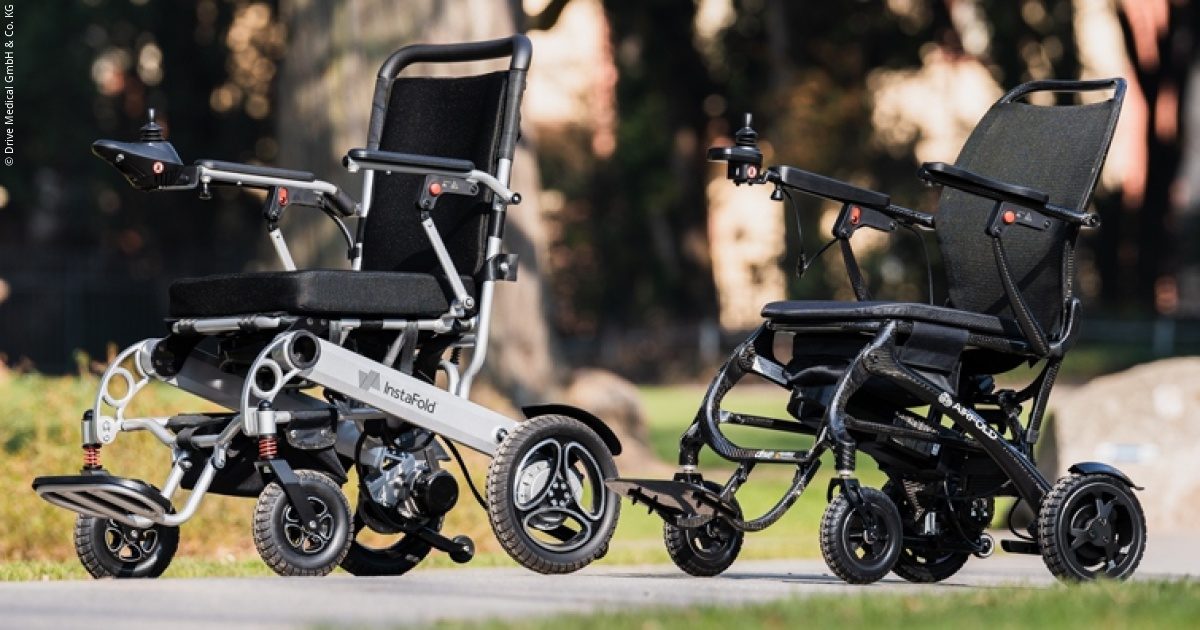Understanding Rinvoq and Velsipity: Treatment Options for Seniors with Inflammatory Conditions

As we get older, dealing with chronic health issues like arthritis or digestive problems can feel like a full-time job. For seniors living with conditions like rheumatoid arthritis (RA), psoriatic arthritis (PsA), or ulcerative colitis (UC), two medications—Rinvoq (upadacitinib) and Velsipity (etrasimod)—are making waves as effective treatments. These pills offer hope for managing symptoms and improving quality of life, but they also come with some important considerations, especially for older adults. In this blog, we’ll break down what these medications are, how they can help, what to watch out for, and tips for seniors thinking about starting them. Let’s dive in!
Related: Navigating Ulcerative Colitis: Exploring Treatment Options Including Xeljanz and Velsipity
What Are Rinvoq and Velsipity?
Rinvoq (Upadacitinib)
Rinvoq is a Janus kinase (JAK) inhibitor, a type of oral medication that targets specific enzymes involved in the inflammatory process. By blocking JAK enzymes, Rinvoq reduces inflammation, alleviating symptoms such as joint pain, swelling, and stiffness in conditions like RA, PsA, and ankylosing spondylitis (AS). It is also approved for moderate to severe UC, Crohn’s disease, atopic dermatitis (eczema), and giant cell arteritis (GCA) in patients who have not responded well to other treatments, such as tumor necrosis factor (TNF) blockers. Rinvoq is typically taken once daily as an extended-release tablet (15 mg, 30 mg, or 45 mg) or as an oral solution (Rinvoq LQ) for pediatric patients.
Velsipity (Etrasimod)
Velsipity is a sphingosine 1-phosphate (S1P) receptor modulator, a newer class of oral medication approved for adults with moderate to severe UC. Unlike Rinvoq, which targets inflammation inside cells, Velsipity works by preventing immune cells (lymphocytes) from reaching sites of inflammation, thereby reducing damage to the intestinal lining. It is taken as a 2 mg tablet once daily and is designed for long-term use in patients whose UC has not responded adequately to conventional therapies.
Both medications offer convenient oral administration, making them appealing for seniors who may prefer pills over injections or infusions. However, their mechanisms, indications, and safety profiles differ, and these differences are critical when considering treatment for older adults.
How Do Rinvoq and Velsipity Benefit Seniors?
Benefits of Rinvoq
Rinvoq has demonstrated significant efficacy across multiple inflammatory conditions, which is particularly relevant for seniors who may have comorbidities. Key benefits include:
-
Rapid Symptom Relief: Clinical trials show Rinvoq can reduce RA symptoms like joint pain and swelling within weeks, with significant improvements by 12 weeks. For UC, it achieves early symptomatic remission, often outperforming other therapies like TNF blockers.
-
Broad Indications: Rinvoq treats nine conditions, including RA, PsA, UC, Crohn’s disease, and atopic dermatitis, making it a versatile option for seniors with multiple inflammatory disorders.
-
Long-Term Efficacy: Phase 3 trials indicate that Rinvoq maintains clinical remission in RA and PsA for up to three years, offering sustained relief for chronic conditions common in older adults.
-
Convenience: As a once-daily pill, Rinvoq simplifies treatment regimens, which is crucial for seniors managing polypharmacy.
Benefits of Velsipity
Velsipity is a newer option specifically for UC, offering unique advantages:
-
Targeted UC Treatment: Velsipity is highly effective for moderate to severe UC, helping seniors achieve clinical remission and reduce symptoms like abdominal pain and diarrhea. It is particularly useful for those who have failed other treatments.
-
Oral Administration: Like Rinvoq, Velsipity’s once-daily tablet is easy to incorporate into daily routines, improving adherence among seniors.
-
Novel Mechanism: As an S1P receptor modulator, Velsipity provides an alternative for patients who do not respond to JAK inhibitors or biologics, expanding treatment options for seniors with refractory UC.
Why These Matter for Seniors
Seniors often face unique challenges with inflammatory conditions, including reduced mobility, increased fatigue, and higher susceptibility to infections. Rinvoq and Velsipity address these by targeting inflammation directly, improving quality of life. For example, Rinvoq’s ability to reduce RA fatigue can enhance daily functioning, while Velsipity’s UC remission rates can decrease hospital visits, a significant concern for older adults.
Risks and Considerations for Seniors
While Rinvoq and Velsipity offer substantial benefits, they carry risks, particularly for seniors, who may have age-related vulnerabilities like cardiovascular disease, weakened immune systems, or renal impairment. Both medications have boxed warnings from the FDA, highlighting serious safety concerns.
Rinvoq Risks
Rinvoq’s boxed warnings include increased risks of:
-
Serious Infections: Rinvoq suppresses the immune system, raising the risk of infections like tuberculosis (TB), pneumonia, and herpes zoster (shingles). Seniors over 50 with cardiovascular risk factors are particularly vulnerable. Patients must be screened for TB before starting treatment.
-
Increased Mortality: Studies show a higher risk of death in patients over 50 with cardiovascular risk factors taking JAK inhibitors, including sudden cardiovascular death.
-
Cancer: Rinvoq may increase the risk of lymphoma and nonmelanoma skin cancer, especially in current or past smokers. Regular skin exams are recommended.
-
Blood Clots: There is a risk of deep vein thrombosis, pulmonary embolism, and arterial thrombosis, which can be life-threatening.
-
Cardiovascular Events: Heart attacks and strokes are more likely in seniors with risk factors like smoking or hypertension.
Other side effects include elevated liver enzymes, neutropenia, and retinal detachment (rare). Seniors should avoid live vaccines during treatment and report symptoms like fever, chest pain, or vision changes immediately.
Velsipity Risks
Velsipity’s safety profile is distinct, with risks including:
-
Infections: By reducing lymphocyte migration, Velsipity increases infection risk, particularly upper respiratory infections and urinary tract infections. Seniors should avoid live vaccines during treatment and for five weeks after stopping.
-
Cardiovascular Effects: Velsipity can cause bradycardia (slow heart rate) or atrioventricular block, especially in the first few days of treatment. Seniors with recent heart attacks, strokes, or arrhythmias may not be suitable candidates.
-
Liver Injury: Elevated liver enzymes have been reported, requiring regular monitoring.
-
Macular Edema: Rare cases of vision changes due to macular edema have been noted, necessitating eye exams in at-risk patients.
Velsipity is not recommended during pregnancy, and seniors who are caregivers for pregnant individuals should discuss risks with their doctor.
Special Considerations for Seniors
-
Cardiovascular Health: Seniors with heart disease or risk factors (e.g., smoking, hypertension) face higher risks with both medications, particularly Rinvoq. A thorough cardiovascular assessment is essential before starting treatment.
-
Renal and Hepatic Function: Rinvoq’s dose is adjusted (15 mg daily) for seniors with severe renal impairment, while Velsipity requires monitoring for liver function. Regular blood tests are critical.
-
Polypharmacy: Seniors often take multiple medications, increasing the risk of drug interactions. Rinvoq interacts with 613 drugs, including prednisone and ibuprofen, while Velsipity interacts with certain heart medications. A pharmacist review is recommended.
-
Infection Screening: Both medications require TB and hepatitis screening before initiation, as seniors are more prone to reactivation of latent infections.
-
Pregnancy and Breastfeeding: While less relevant for most seniors, caregivers or those with younger family members should note that both drugs are contraindicated during pregnancy and breastfeeding.
Comparing Rinvoq and Velsipity for Seniors
|
Aspect |
Rinvoq |
Velsipity |
|---|---|---|
|
Mechanism |
JAK inhibitor |
S1P receptor modulator |
|
Indications |
RA, PsA, UC, Crohn’s, AD, AS, GCA, pJIA |
UC |
|
Dosage |
15–45 mg once daily (tablets or oral solution) |
2 mg once daily (tablet) |
|
Key Risks |
Infections, cancer, blood clots, CV events |
Infections, bradycardia, liver injury |
|
Senior-Specific Dosing |
15 mg for ≥65 years or renal impairment |
No age-specific adjustment |
|
Cost (30-day supply) |
~$6,124 (varies by insurance) |
Varies by insurance |
Rinvoq is more versatile, covering multiple conditions, while Velsipity is a targeted UC therapy. Seniors with complex inflammatory profiles may benefit from Rinvoq, but those with UC and cardiovascular concerns may find Velsipity’s profile more suitable, provided heart conditions are stable.
Practical Tips for Seniors Starting Rinvoq or Velsipity
-
Consult a Specialist: Work with a rheumatologist or gastroenterologist experienced in these medications to tailor treatment to your health profile.
-
Monitor Side Effects: Keep a symptom diary and report issues like fever, chest pain, or vision changes promptly.
-
Adhere to Monitoring: Attend regular blood tests and screenings for infections, cancer, and organ function.
-
Explore Financial Support: Rinvoq offers a savings card for eligible patients, potentially reducing costs to $0/month for commercially insured seniors. Velsipity’s cost varies, but check with your pharmacy for assistance programs.
-
Lifestyle Support: Maintain a healthy diet, avoid smoking, and limit sun exposure (for Rinvoq) to reduce risks.
Wrapping It Up
Rinvoq and Velsipity are game-changers for seniors dealing with conditions like RA, PsA, or UC. They can reduce pain, improve mobility, and make daily life more enjoyable, all with the convenience of a once-a-day pill. But they’re not without risks, especially for older adults who might have heart issues or weaker immune systems. By staying in close touch with your doctor, keeping up with monitoring, and making healthy lifestyle choices, you can make the most of these treatments while keeping risks in check.
Want to learn more? Check out Rinvoq’s official website or talk to your doctor about Velsipity’s details. Here’s to feeling better and living life to the fullest!
ADVERTISEMENT





